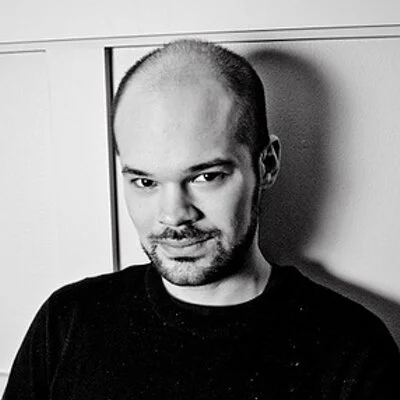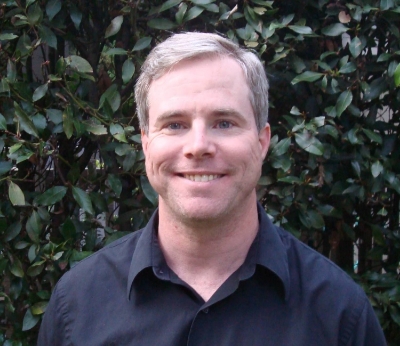Words Saved Me: 8 Questions With Stray Author Tanya Marquardt
Dark and Brutal: The Inner Code of Nick Kolakowski’s Boise Longpig Hunting Club
Write the World You Want: America for Beginners Author Leah Franqui
Author Bella Mahaya Carter Explores Self-Love and Holistic Healing in New Memoir
‘Casual’ Creator Zander Lehmann Looks Back on Four Years of His Hulu Dramedy
Author Rosalie Knecht Reimagines the Spy Game With Who Is Vera Kelly?
A Conversation With The Great Believers Author Rebecca Makkai
Match Made in Manhattan: 9 Questions With Playing With Matches Author Hannah Orenstein
Nancy Rommelmann Investigates How A Mother Could Kill Her Own Children in To the Bridge
Silver Girl Author Leslie Pietrzyk on Sparking Literary Bonfires
Writing the Story With Zebulon Harris: Teen Medium Author A.M. Wheeler
By Sean Tuohy
Combining teenage angst with the ability to talk to a dead author, A.M. Wheeler’s Zebulon Harris: Teen Medium is a wildly entertaining novel.
The hardworking author and screenwriter swung by Writer’s Bone to talk about her writing process, who she based her teenage medium off of, and what’s next for her.
Sean Tuohy: When did you know you wanted to be a storyteller?
A.M. Wheeler: I started telling stories to my family around the dinner table when I was about 3 years old. I just have always been fascinated with stories and making up characters or scenarios that would make people laugh. So, I’d say around middle school, I kind of knew I wanted to work as a writer and possibly even direct film one day.
ST: What is your writing process? Do outline?
AW: My writing process is interesting. I don’t write everyday. I actually like to take some months off and experience different events, people, cultures, and then after think about my next story. I find allowing my thoughts to manifest for a while, makes my stories feel unforced and it’s my way of avoiding writer’s block.
I always outline! Before I begin writing a story, I always know the ending of the story before I even know how it begins! I find this technique best for me because if I know where a character ends up, I can then feel like a detective as I write backwards and leave little foreshadowing moments on how the characters ended up where they did.
ST: Where did the idea for Zebulon Harris: Teen Medium come from?
AW: Growing up I’ve always been interested in the supernatural world and the ultimate question of what happens after one dies. I knew I wanted to have a teen protagonist because high school was such a pivotal moment in my life. High school can be such a rough transition and once I knew I wanted to combine the world of high school with a supernatural twist, Zebulon Harris: Teen Medium, was born! I always find coming of age stories to be timeless and the ultimate of message really is universal to everyone.
ST: Zebulon “Zeb” Harris is a great main character. Unlike most characters he rejects his special abilities and sees them as a burden. Where did he come from?
AW: I think most teens in high school reject their situation or identity at one point or another. You know, if you’re tall you wish you were short; if you have curly hair, you wish it were straight. The concept of wanting what you can’t have is a struggle I really related to in high school. So, once I knew I wanted to write about the supernatural world and was trying to create this relatable protagonist, Zeb, I realized making him reject who he is would be what can connect teens to this book. You don’t have to have powers to understand Zeb’s struggle. I think readers can appreciate the concept of trying to discover yourself and accept yourself for who you are.
ST: Is there any of you in Zeb?
AW: I think Zeb is a lot cooler than myself! However, definitely his closeness to his family is something I think is similar to own life. I also think his sometimes sarcastic nature was exactly how I was in high school. He tended to not really care about school that much, and for a while I was the same way! It wasn’t until my junior year of high school that I started taking school more seriously. Otherwise, Zeb is actually more like my best friend from high school. A lot of Zeb’s mannerisms mimic his, and I think that’s why Zeb feels authentic. He’s actually partially based on a real person.
ST: What's next for you?
AW: I currently teach screenwriting and creative writing courses at a university. I have taken some time off from writing. However, I do have a few ideas for some scripts in the future, and I definitely think I’ll get back into the film festival scene starting after the 2018 New Year. I’m hoping to eventually get involved in some film shorts and possibly even end up behind the camera.
ST: What advice do you have for aspiring authors?
AW: The best advice I can give other writers is to stop overthinking before you write. Just write the story. It’s okay if the plot has inconsistencies, or the story doesn’t make total sense when you reread it. Editing will always be there, and rewriting. But, you can’t do anything if you stop yourself from getting anything on the page. Lastly, don’t take criticism personally. You may hear “no” way more times than you hear “yes," but don’t stop writing. Your writing can make a difference.
ST: Can you please tell us one random fact about yourself?
AW: One random fact about me would be that when I get to a part of a story where the character is going through an extreme emotion of anger, or being in love, or sad, I listen to music that correlates that emotional state. Music helps relax my mind and makes me feel what the character may be going through. So, usually I’ll have my headphones on and I just allow the music to make me feel certain emotions before I begin writing. I find this is the closest way to be as authentic in the moment as possible, especially when writing a piece from a first person narrative.
To learn more about A.M. Wheeler, follow her on Twitter @amwheeler90.
The Writer’s Bone Interviews Archive
In Orbit: 7 Questions With Artemis Author Andy Weir
By Caitlin Malcuit
Andy Weir shoots from Mars to the Moon in his latest novel Artemis, introducing us to a wealthy and exclusive lunar colony where Jasmine Bashara works as a porter, struggling to get by. There's not much money to be made in that gig, so Jasmine—“Jazz”—must survive and earn her keep as a smuggler. When a heist too good to pass up unearths a larger conspiracy, Jazz is thrown into the seedy underbelly of the glitzy Artemis.
Weir talked to me about the new and exciting setting for his story, his influences, and imparted some valuable advice for writers navigating the publishing world in the digital age.
Caitlin Malcuit: What is your process for writing a novel, especially the research that goes into science fiction?
Andy Weir: I start with a bunch of research. For me, the science and setting have to be right before I’m willing to work on the story. Once I’m into the actual writing, I set myself a daily word count to shoot for.
CM: Which authors influenced you?
AW: I’m a Gen-Xer, but I grew up reading my father’s sci-fi collection. So, despite my generation, my main influences are the Baby Boomer era authors. My holy trinity are Heinlein, Asimov, and Clarke.
CM: What drew you to setting Artemis on a lunar colony?
AW: I wanted to write a story about the first human settlement off of Earth. And I just really think that’ll be on the Moon. It’s so much close to Earth than any other celestial body. Most importantly, it’s close enough for trade and tourism.
CM: Jazz is certainly driven to survive, as Mark Watney was when he was stranded on Mars, but, given the wealth disparity on Artemis, what inspired you to tackle Jazz’s unique situation?
AW: Well I’ve always had a love of heist stories and crime novels. So I figured why not do a sci-fi heist story?
CM: Are you excited to see where Phil Lord and Chris Miller will take Artemis as they bring it to the screen?
AW: Absolutely! Though it’s still early days yet. I try not to get myself too worked up about it. A lot of things have to go right for a film project to be greenlighted.
CM: What advice do you have for aspiring writers, especially now that NaNoWriMo is in full swing?
AW:
- You have to actually write. Daydreaming about the book you’re going to write someday isn’t writing. It’s daydreaming. Open your word processor and start writing.
- Resist the urge to tell friends and family your story. I know it’s hard because you want to talk about it and they’re (sometimes) interested in hearing about it. But it satisfies your need for an audience, which diminishes your motivation to actually write it. Make a rule: The only way for anyone to ever hear about your stories is to read them.
- This is the best time in history to self-publish. There’s no old-boy network between you and your readers. You can self-publish an ebook to major distributors (Amazon, Barnes and Noble, etc.) without any financial risk on your part.
CM: Can you please tell us one random fact about yourself?
AW: I like to do woodworking. It’s a hobby that’s helpful to me to clear my mind when I’m stressed out or when I’m stuck on a plot problem in whatever project I’m on.
To learn more about Andy Weir, visit his official website, like his Facebook page, or follow him on Twitter @andyweirauthor. Also read our last interview with the author!















